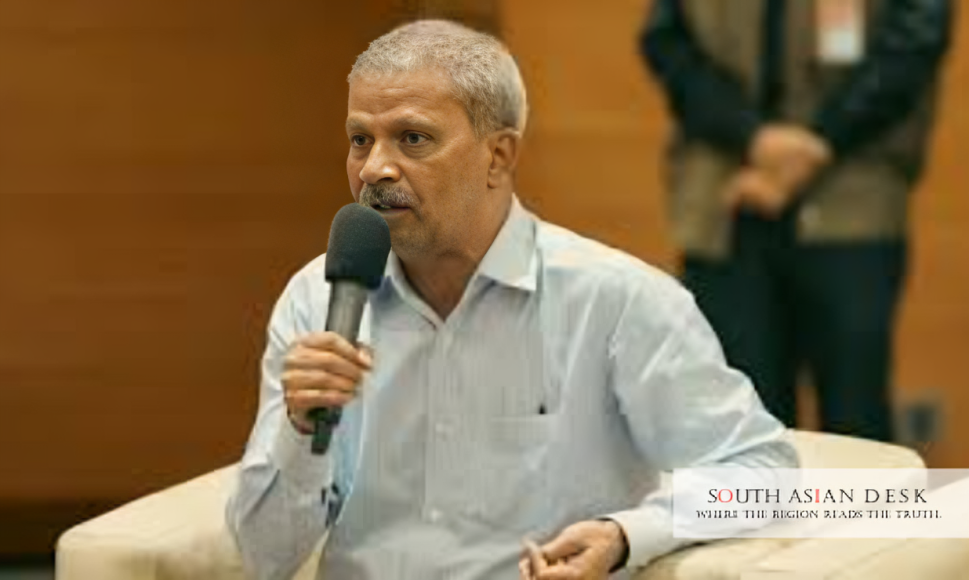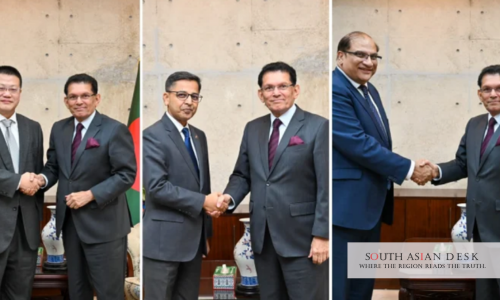The Bangladesh government is set to extend the tenure of the National Consensus Commission (NCC) for a second time on Monday, September 15, 2025, in Dhaka, to achieve consensus on implementing vital Bangladesh government NCC reforms enshrined in the July National Charter 2025, following seven months of deliberations with 30 political parties that have yet to yield agreement.
Why it Matters
In a nation emerging from political upheaval, the Bangladesh government NCC reforms represent a cornerstone for rebuilding trust in institutions, with ripple effects across South Asia where transitional governance models could inspire or caution neighbours grappling with similar democratic transitions.
Stalled Progress Prompts NCC Tenure Extension in Bangladesh
The National Consensus Commission, formed on February 12, 2025, under Chief Adviser Professor Dr Muhammad Yunus, was tasked with forging national agreement on sweeping reforms across six key commissions, including electoral and constitutional changes. Its initial six-month mandate expired on August 15, 2025, prompting a one-month NCC tenure extension Bangladesh authorities granted in August to allow further consultations.
Despite intensive meetings at the Foreign Service Academy in Dhaka, the NCC has addressed only about 50% of proposals from the reform commissions, falling short of the 70% target set for December 2025. Political parties, ranging from the Bangladesh Nationalist Party (BNP) to Jamaat-e-Islami and the nascent National Citizen Party (NCP), have engaged in discussions but diverged on the mechanism for enacting the July National Charter, a blueprint for post-uprising governance.
Dr Badiul Alam Majumder, head of the Election Reform Commission and an NCC member, emphasised the impasse: “The implementation process of the July Charter will be finalized only once the political parties reach a consensus.” This sentiment echoes broader challenges in aligning diverse stakeholders on whether to pursue an extra-constitutional order, a provisional constitutional framework, a referendum, or a constituent assembly election.
NCC Vice-Chair Professor Ali Riaz has urged unity, stating that safeguarding cooperation is essential to conclude the process impartially, potentially setting a global example. Sources within the commission indicate that the decision for another NCC tenure extension Bangladesh rests squarely with the interim government, which has not yet issued a formal notification as of Sunday evening, September 14, 2025.
Voices from Political Spectrum on Bangladesh Government NCC Reforms
Leaders from major parties have voiced support for expediting the Bangladesh government NCC reforms, albeit with caveats. BNP Standing Committee Member Salahuddin Ahmed called for a “fully implementable process,” adding, “Please find a fully implementable process. You have already consulted many experts. If you feel their suggestions are useful and choose to implement them, you are free to do so—we will raise no objection.”
Jamaat-e-Islami Secretary General Hamidur Rahman Azad advocated public involvement if consensus eludes parties: “If political parties cannot reach an agreement, the people should decide through a referendum.” Meanwhile, NCP Member Secretary Akhter Hossen highlighted proximity to resolution: “The Consensus Commission has been holding discussions for a long time, and we are now nearing the final stage. It is time to finalize the implementation process.”
Legal experts, including retired Appellate Division Justice M A Matin and Dhaka University Law Faculty Dean Mohammad Ikramul Haque, alongside senior advocates like Dr Sharif Bhuiyan, have advised the NCC on viable pathways, underscoring the need for judicial consultation to ensure sustainability. Law Adviser Asif Nazrul tied the timeline to impending elections: “As the election is in February, we need to finalize all necessary amendments and changes by November 30.”
Crunch talks resumed on Wednesday, September 10, 2025, with another round slated imminently to bridge gaps, as the commission’s extended term lapses without a breakthrough. This follows the August extension, notified on Monday, August 12, 2025, which bought precious time but highlighted persistent hurdles in the Bangladesh government NCC reforms agenda.
Background
The NCC emerged from the July 2025 uprising, aiming to consolidate reforms proposed by specialised commissions on judiciary, police, anti-corruption, and more. The July National Charter, a pivotal document, outlines principles for equitable power-sharing and institutional overhauls. Previous NCC tenure extension Bangladesh efforts reflect the interim government’s strategy to avoid unilateral decisions, fostering inclusivity amid a fragile political landscape. Chief Adviser Yunus framed the stakes: “A chapter ends here, but the final part is the most crucial. If we complete it properly and impartially, it will serve as a global example.”
What’s Next for NCC Reforms
With elections tentatively slated for February 2026, the government anticipates wrapping Bangladesh government NCC reforms by late November 2025, potentially via a hybrid referendum-constitutional route if consensus holds. Insiders suggest a short extension—perhaps another month—could suffice, barring unforeseen discord.
As deliberations intensify, the NCC tenure extension Bangladesh decision will test the interim administration’s balancing act between urgency and dialogue, ultimately shaping the trajectory of Bangladesh government NCC reforms for years to come.
Published in SouthAsianDesk, September 15th, 2025
Follow SouthAsianDesk on X, Instagram, and Facebook for insights on business and current affairs from across South Asia.






